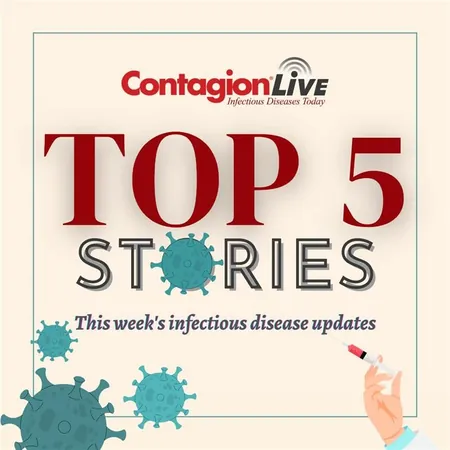
Essential CDC Guidelines for Ensuring Equitable Vaccination Among Children to Combat Serious Illnesses
2024-09-24
In an enlightening conversation with Pharmacy Times, Dr. Evelyn Twentyman, a senior advisor for vaccine strategy at the CDC's National Center for Immunization and Respiratory Diseases, emphasized the critical need for timely vaccinations for children and the efforts to combat vaccine hesitancy. Dr. Twentyman highlighted the essential role that healthcare providers and pharmacists play in building trust with parents, underscoring the importance of robust and continuous vaccination recommendations.
The Importance of On-Schedule Vaccination
Dr. Twentyman noted that while many parents follow the recommended vaccination schedule for their children, there remain inquiries about the necessity and safety of these vaccines. She reassured caregivers that these vaccines are extremely safe, backed by extensive surveillance data from the CDC, which has monitored the immunization of hundreds of millions of children over the years.
Following the vaccination schedule is not just about compliance; it is designed to provide children protection at pivotal developmental stages and during periods when they are most likely to encounter diseases. Parents who keep up with this schedule ensure their children receive the maximum benefits of lifesaving vaccines. Delays in vaccinations lead to reduced protection, making it imperative for healthcare providers to encourage adherence to the schedule.
Key Takeaways for Caregivers and Healthcare Providers
- **Safety of Vaccines:** Vaccines are proven safe and essential in preventing serious illnesses among children. The CDC runs rigorous programs to ensure vaccine safety.
- **Role of Healthcare Providers:** Providers, especially pharmacists, are uniquely positioned as trusted sources of information for parents. Building rapport and trust is critical in alleviating concerns regarding vaccinations.
- **Equity in Access:** The CDC's Vaccines for Children (VFC) program guarantees that children, regardless of their families' financial capabilities, have access to necessary vaccines. This program has successfully distributed over 1.3 billion doses since its inception in 1994.
Bridging the Gap in Communication
Dr. Twentyman encouraged healthcare providers to actively engage in discussions with parents regarding vaccinations, noting that trust and ongoing dialog can significantly enhance vaccination rates. Realizing that some parents may hesitate to vaccinate does not imply they won’t eventually accept it; it often means they need more information or reassurance.
Continuing the conversation, even after initial resistance, can lead to breakthroughs in vaccine acceptance. This patient approach is particularly important in light of recent public concerns around immunizations.
Addressing Vaccine-Hesitant Parents: Strategies for Success
Dr. Twentyman provided practical strategies for engaging vaccine-hesitant parents: - Emphasize the immediate benefits to children in following the recommended vaccination schedule. - Share success stories about how vaccines have eliminated once-common diseases, stressing the lifesaving importance of immunizations. - Highlight the potential risks of delayed vaccinations to create urgency.
CDC's Ongoing Commitment to Vaccination
Recently, the CDC has initiated "Keeps it That Way," a campaign aimed at educating parents about vaccine-preventable diseases and the imperative of maintaining high vaccination rates to protect public health.
VFC Program’s Impact on Vaccine Access
The VFC program plays a crucial role in ensuring health equity by providing free vaccines to children from families that may struggle to afford them. This initiative is especially vital for underserved communities, and in 2022 alone, the program distributed more than 71.5 million doses.
As Dr. Twentyman stated, "Public health is a team sport," and the ongoing collaboration between health organizations and providers is essential for maintaining and improving immunization rates across the nation.
In conclusion, with vaccine-preventable diseases becoming less common due to successful immunization efforts, it is critical that parents, caregivers, and healthcare providers work together to ensure that every child receives these vital vaccines to lead a healthy life. The CDC remains a steadfast partner in supporting these efforts, reminding all stakeholders of the urgent need to prioritize childhood vaccinations.




 Brasil (PT)
Brasil (PT)
 Canada (EN)
Canada (EN)
 Chile (ES)
Chile (ES)
 España (ES)
España (ES)
 France (FR)
France (FR)
 Hong Kong (EN)
Hong Kong (EN)
 Italia (IT)
Italia (IT)
 日本 (JA)
日本 (JA)
 Magyarország (HU)
Magyarország (HU)
 Norge (NO)
Norge (NO)
 Polska (PL)
Polska (PL)
 Schweiz (DE)
Schweiz (DE)
 Singapore (EN)
Singapore (EN)
 Sverige (SV)
Sverige (SV)
 Suomi (FI)
Suomi (FI)
 Türkiye (TR)
Türkiye (TR)